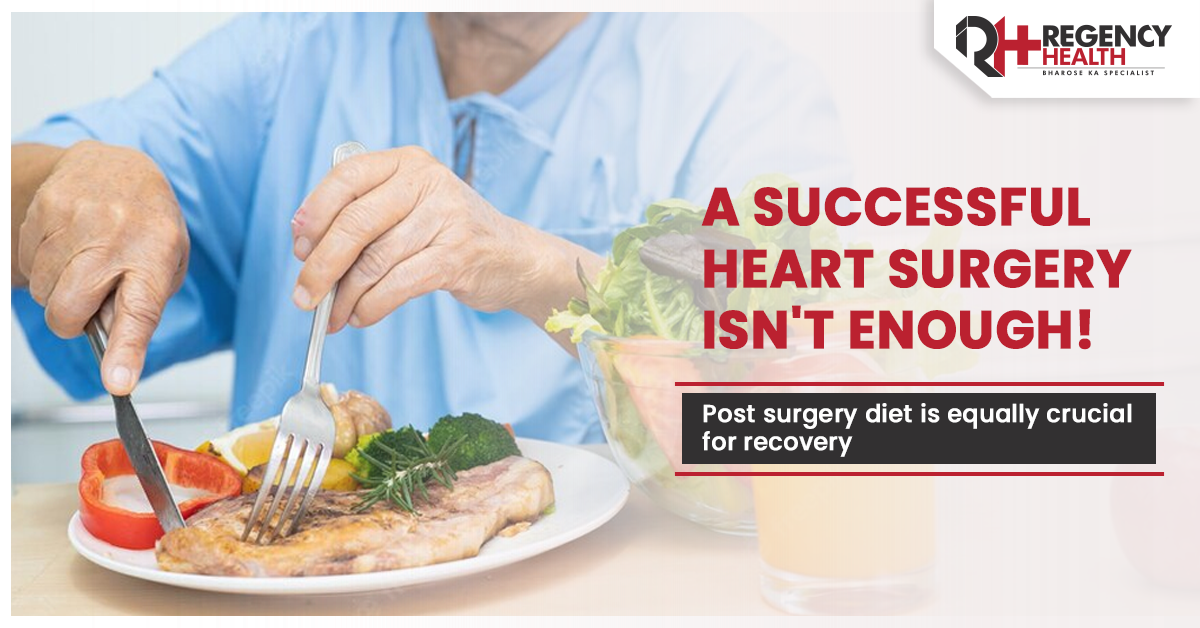
Cardiac issues are not an uncommon sight these days. Obesity, sedentary lifestyle, unhealthy food habits, and genetic factors are making these complications more common than ever. Resultantly, heart surgeries are also becoming quite a common sight. Thankfully, there is nothing to worry about as the advancements in the medical field have made this procedure pretty safe. While the team of doctors is there to take care of you inside the hospital, successful heart surgery is just half the battle won. Once a person undergoes heart surgery, there are numerous physical as well as dietary restrictions imposed and it is important that the patient follows these guidelines strictly.
Proper dietary care during the post-surgery period is vital for complete recovery. The patients must take a balanced diet rich in protein, antioxidants and vitamins, among other recommended nutrients. The ideal post-surgery recovery period lasts anywhere between 6-12 weeks before the patient can resume their regular routine. Apart from adding new elements to our diets, we must first and foremost cut down on trans fats and saturated fats from our diet. These items contribute heavily to increased cholesterol levels in our body and can cause great risk to your fragile heart.
Apart from the above, the following are some items that you have to add and some that you need to cut down to make an ideal diet for a heart surgery patient.
What to Eat?
Lean Meat – This primarily includes fish and can be a rich source of protein for your body. We must ensure that meat is cooked in extremely small quantities of oil. We can also go for a grill option or an air-fired option.
Fresh Fruits and Vegetables– Fresh fruits and vegetables are a rich source of antioxidants and fiber. These play a great role in controlling cholesterol levels and filling us up while being nutritious at the same time.
Low Fat Products –It is a misconception that fat items must be avoided by heart patients. Food items consisting of fats are a great source of energy for our bodies. However, in the case of heart patients, these must be regulated and low-fat dairy items such as low-fat milk, Greek yogurt, etc. can be consumed
Vitamins A & C – Fruits rich in citrus such as oranges, grapefruits strawberries, pineapple, etc. can be consumed. Along with this, carrots, Brussels sprouts, and sweet potatoes can also be eaten to get an adequate supply of Vitamin A & C to our body.
What to Delete?
Carbohydrates– High-carb items must be avoided at all costs as they can cause an influx in cholesterol levels. Along with these, sugary items and drinks must be cut out from the diet. These items can increase the triglyceride levels in the blood hence must be regulated.
Salts – While cooking for heart surgery patients, salt must be used in extremely limited amounts. The ideal sodium intake for a heart patient should be much lower than that of a normal person. In addition to this, salty snacks must be removed from the diet to control blood pressure.
Junk Food- This is a no-brainer and in general must be avoided by all. However, for heart patients in particular, processed foods and junk foods must be removed. It might be a challenge to cut out this part from the diet, however, for the greater good of our hearts, junk foods must be deleted as they contain high carbs and sugars.
Overall, a healthy and balanced diet rich in vitamins, proteins, and antioxidants must be consumed by heart patients. The main feature of a good diet is that it must be nutrient-rich and not fill us up to the level of nausea. Doctors and nutritionists will prescribe an appropriate diet after the surgery and it is our responsibility to follow it for a healthy heart.
Request a call back


 Call-an-Ambulance
Call-an-Ambulance



